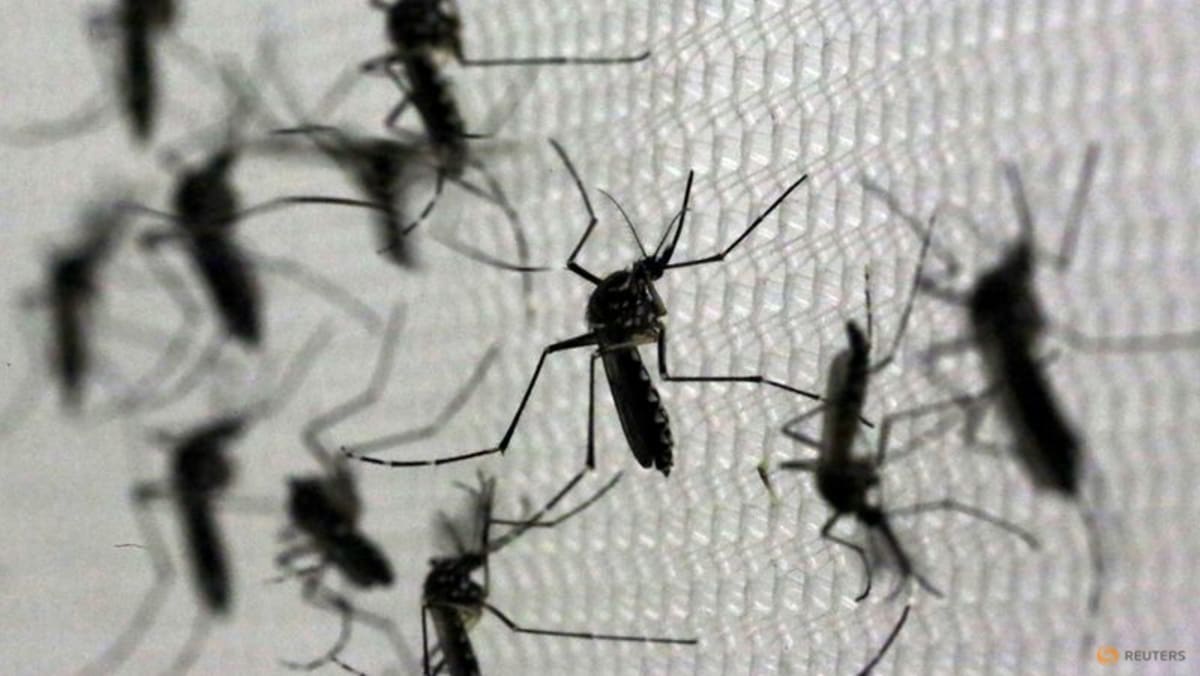
SINGAPORE: Surveillance has been stepped up in Boon Lay after one Zika case was reported in December, the Ministry of Health (MOH) and National Environment Agency (NEA) said on Thursday (Feb 22).
While no new Zika cases have been reported in that area since then, mosquito and wastewater testing suggest ongoing Zika transmission, and authorities have stepped up precautionary measures.
But what exactly is Zika and how does it affect you?
WHAT IS ZIKA?
Similar to dengue, Zika is a virus infection that is spread by the Aedes mosquito.
According to MOH, about 20 per cent of people infected with Zika display symptoms, and while Zika infection is generally mild, it can cause neurological complications or abnormalities in fetuses.
There is no specific vaccine or drug against Zika, though its symptoms can be treated.
HOW IS ZIKA TRANSMITTED?
The Zika virus is transmitted to people primarily through the bites of an infected Aedes mosquito.
A mosquito gets the virus after it bites someone who is infected during the period when the virus can be found in the person’s blood. This is typically during the first week of infection.
The infected mosquito can then spread the virus to other people through bites.
A pregnant infected woman can also pass the Zika virus to her fetus during pregnancy. This is especially dangerous, as it can cause birth defects.
According to the US Centers for Disease Control and Prevention (CDC), Zika virus transmission through breast milk has not been confirmed, though it has been found in breast milk.
Zika can also be passed through sex from an infected person to his or her partners, even if that person does not show any symptoms at that time.
WHAT ARE THE SYMPTOMS?
Most people with Zika virus do not develop symptoms or will only have mild symptoms. In one in five cases, they may have the following symptoms:
- Fever
- Rash
- Joint pain
- Muscle pain
- Headache
- Conjunctivitis (red eyes)
Symptoms usually appear within three to 14 days of being bitten by an infected Aedes mosquito, MOH said, and can last between four and seven days.
Because Zika symptoms are usually mild and people usually do not get sick enough to go to the hospital, many people do not even realise they have been infected, according to the CDC.
WHAT ARE THE HEALTH RISKS OF ZIKA?
MOH said there is currently no evidence that pregnant women are more likely to get a Zika virus infection.
However, Zika infection during pregnancy can cause serious birth defects such as microcephaly. Babies with microcephaly usually have a smaller head than usual, and smaller brains that did not develop properly, said the CDC.
“Babies who were infected with Zika before birth may have damage to their eyes and/or the part of their brain that is responsible for vision, which may affect their visual development,” it said, adding that babies with or without microcephaly can have eye problems.
Findings from a study in Brazil show that at 19-24 months, babies with congenital Zika virus infection exhibited challenges with sitting independently, feeding and sleeping, according to the CDC. In addition, the babies experienced seizures and problems with their hearing and vision.
“Zika infection in pregnancy can also cause complications such as fetal loss, stillbirth and preterm birth,” said the World Health Organization (WHO).
In adults and children, Zika infection has been found to be strongly associated with Guillain-Barre syndrome (GBS), an uncommon sickness in which a person’s own immune system damages their nerve cells, causing muscle weakness and sometimes paralysis.
However, only a small proportion of people with recent Zika infection get GBS, current CDC research shows.
HOW TO PREVENT TRANSMISSION OF ZIKA?
As Zika is primarily spread through the bites of the Aedes mosquito, measures taken to combat dengue and prevent the breeding of mosquitoes remain the most effective way of limiting Zika infection.
MOH advises members of the public to take protective measures such as removing stagnant water at home and workplaces to prevent mosquito breeding.
People can also apply insect repellent and wear long, covered clothing. They can also sleep under mosquito nets or in rooms with wire-mesh screens or air-conditioned rooms to keep out mosquitoes.
“For those who are not pregnant, confirming a Zika infection generally does not have an impact on the clinical management, which is currently focused on relieving symptoms,” said MOH. “It is, however, useful in directing vector control efforts.”
“Doctors will continue to make the clinical judgement on individuals as to whether testing of Zika is necessary,” it added.
Those who are infected are advised to either abstain from sexual intercourse temporarily, or to practice safer sex through the use of condoms.
